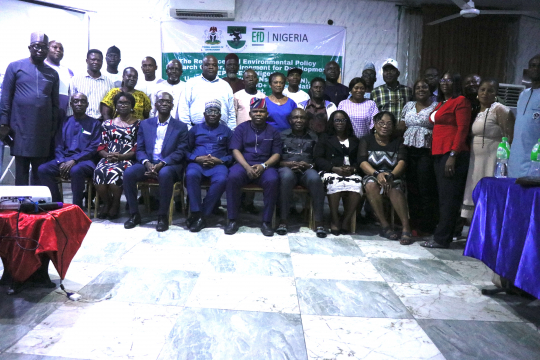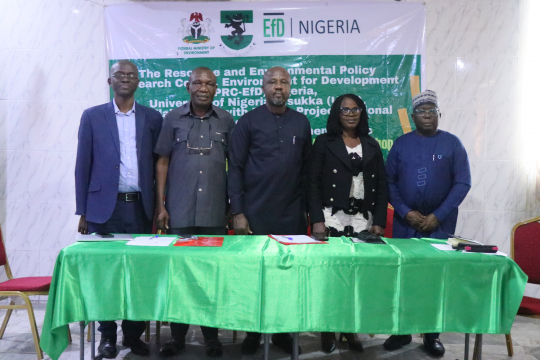Research conducted by scholars from EfD Nigeria has revealed that many communities in the Cross River State, Nigeria, are willing to engage in endeavors to conserve Nigerian forests by implementing the REDD+ initiative.
The REDD+ initiative provides incentives to forest communities to help mitigate deforestation and degradation and reduce greenhouse gas emissions.
REDD+ is an abbreviation for Reducing Emission from Deforestation and Degradation, with the ‘+’ signifying additional forest-related activities that contribute to climate protection.
Nigeria joined the United Nations’ REDD+ initiative in 2010, with the objectives of positioning Nigeria among the nations with the lowest carbon emissions, enhancing forest carbon stocks, improving the livelihoods of forest-dependent communities, and fostering sustainable development.
Households are willing to contribute labor
The study conducted by EfD Nigeria researchers aimed to ascertain the willingness of individuals to participate in future REDD+ projects, identify factors influencing their participation, and estimate the impact of REDD+ on households’ income and food security among different groups including gender.
The research findings were disseminated at a stakeholders’ workshop co-hosted by EfD Nigeria and the National REDD+ Secretariat in Calabar, Cross River State, a pilot state for implementing REDD+ projects in Nigeria.
Nnaemeka Chukwuone, the Director of REPRC EfD Nigeria, disclosed that the study showed that many communities are ready to engage in future REDD+ projects in the country and that households are willing to contribute labor towards the project’s success.
Nnaemeka Chukwuone highlighted that the initial REDD+ projects in Cross River State communities failed to yield the desired impact due to flawed implementation of the intervention programs.
"The outcomes of this research will guide the future design of REDD+ interventions to ensure impactful outcomes for forest communities," he said.
Study provides a reference document for policy
Moses Ama, the Director and National Coordinator of the REDD+ Secretariat, emphasized that the study provided valuable information that will serve as a foundation for structuring future REDD+ intervention programs.
"We now possess a credible reference document from this research," he said.
Moses Ama said that his organization will support efforts to extend the study to other communities to get a general understanding of the impact of REDD+ projects in Nigeria.
George Oben Etchi, Chairman of the Forestry Commission in Cross River State, pledged the Cross River State government's support for the success of the REDD+ project in the state, urging forest-dependent communities to be patient with the process.
The stakeholders collectively agreed to introduce participatory forestry management into Nigeria's forestry policy to facilitate the realization of the objectives of the REDD+ initiative.
The workshop was attended by representatives from the National REDD+ Secretariat, coordinators from seven REDD+ states in Nigeria, a delegate from Nigeria’s Minister of State for Environment, representatives from the Forestry Commission, Cross River State, forest community leaders, and academia.
Inya Agha Egwu

